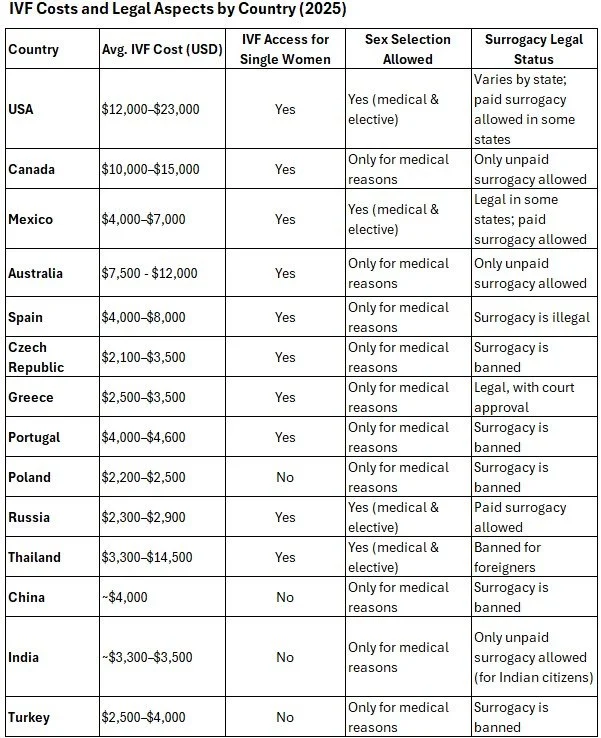IVF Around the World: What You Can Do Depends on Where You Live
Recently, I had a conversation about IVF that left me thinking — not just about how expensive it is, but how different the rules are depending on where you live.
As a single woman, I was able to go through IVF and have my daughter on my own because I live in Canada, where it’s legal. No one asked for a husband, or told me to wait. I didn’t need permission from anyone. In so many other countries, I wouldn’t have had that option. If I wasn’t married, I’d be out of luck.
That got me curious. What are the global rules around IVF? What options are open to women — especially single women — in other parts of the world? And what differences exist beyond cost?
A Patchwork of Access, Rights, and Restrictions
Here’s the short version: IVF laws aren’t uniform globally. Your options depend heavily on where you live, your relationship status, your income, and what you're trying to do — whether that’s freezing your eggs, using a donor, selecting for gender, or working with a surrogate.
In many parts of the world, fertility treatment is still framed around traditional, heterosexual, two-parent families. If you don’t fit that mold, your choices can shrink quickly.
Here’s a snapshot of what access looks like in a few different countries:
Add the cost of medication, donor eggs or sperm, and — if needed — a surrogate, and the total price tag for building a family can skyrocket. In countries where access is restricted or procedures like surrogacy are illegal, many people travel abroad, creating a booming fertility tourism industry.
But traveling for treatment isn’t an option for everyone. It takes time, money, and often legal help to navigate the process — and that’s before you even start injecting hormones or going through egg retrievals.
Why This Matters
Fertility is one of those topics that often feels private — until you're in it. Then you realize how many roadblocks and decisions are shaped not just by your health or your readiness to become a parent, but also by where you happen to live.
For anyone trying to build a family outside the traditional mold, access to IVF and surrogacy isn't just a medical issue — it's a matter of reproductive rights.
And we don't talk about it enough.
What We Need
At minimum, we need:
Clear, accessible information about fertility options and timelines — not just when you're already struggling to conceive
More inclusive laws that don’t exclude people based on relationship status or gender
Greater financial support for fertility treatment, especially in countries where it's prohibitively expensive
There’s no one way to become a parent. But there should be more than one path to get there.
